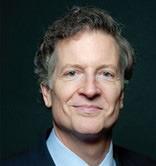Originally published in the Canon, October 4, 2023 The latest poll by Gallup of Americans’ attitudes toward higher education is out, and the results should come as a surprise to nobody. The number of Americans who express “a great deal” or “quite a lot” of confidence in higher education has dropped from 57 percent 2015 to only 36 percent today. While Republicans’ trust in higher education dropped the most, the decline in public confidence spanned all the major subgroups surveyed.
The reasons for the fall in higher education’s public reputation are legion (lack of free speech, tuition hyperinflation, and unmanageable student-loan debt, chief among them). Simply put, a growing number of Americans have come to believe that they are paying too much and learning too little in college.
Among what has been lost in American higher education today is civic education, and the result of this abdication of their teaching duties by our colleges is as alarming as it should have been expected to be: Believe it or not, fewer than half of all Americans can name all three branches of government. How can we maintain a form of government that we barely understand in the first place?
However, amid all this dark news, one school has decided to light a candle. West Texas A&M University (WTAMU), in Canyon, Texas, just announced the launch of its Hill Institute, which will seek to restore civic education to its rightful place of prominence in higher education. The Institute will instruct students in the “basic tenets essential to life, liberty, and the pursuit of happiness in a free society.” Among these “fundamental values are truthfulness and honesty that lead to trust, hard work, regard for others, personal responsibility, the love of family, community and country, rugged individualism, private and civic virtue, family financial freedom, faith and integrity, and loyalty.”
To those old enough to have received something resembling a genuine civic education, the goals articulated by the new WTAMU Institute appear simply to reflect the common-sense recognition that a selfgoverning people must be capable of governing themselves; that is, that they must possess the democratic virtues needed to sustain our democratic form of government.
But in today’s academic world, WTAMU’s common sense is not only uncommon; it is counter-cultural in the extreme. Why? Because, a growing number of universities have moved toward banning words in faculty job descriptions such as, “meritocracy,” “colorblind,” “best qualified,” and “good fit”—that is, they are banning not only the praise, but even the mention, of the very qualities on which democratic liberty depends.
In contrast, not only will WTAMU’s new institute teach the Declaration’s color- blind principle of human equality, but it also goes so far as to praise “hard work.” (Which is another common-sense notion that too many of our universities today would view with horror.)
But not Thomas Jefferson. He would not be horrified. He would be proud. Jefferson warned us that any nation that “expects to be ignorant and free...expects what never was and never will be” (emphasis added). In dropping most civic-education requirements, our colleges today appear to think they know the issue better than our third president did. Our schools’ lax standards regarding civic education testify that they are animated by the view that maintaining American democracy does not require a civically literate citizenry. Through refusing to liberate their students from civic ignorance, these schools reveal themselves to believe that, in fact, Americans can be ignorant yet still be free.
But nowhere in the history of popular government has this ever turned out to be the case. Our universities, with their claims to omniscience, should know this. That they don’t reveals that the root cause of Americans’ civic ignorance is our professors’ own ignorance of the relation between democracy and education.
WTAMU suffers no such ignorance. Let us pray, then, that its bold initiative bears fruit and inspires other schools to go and do likewise.

